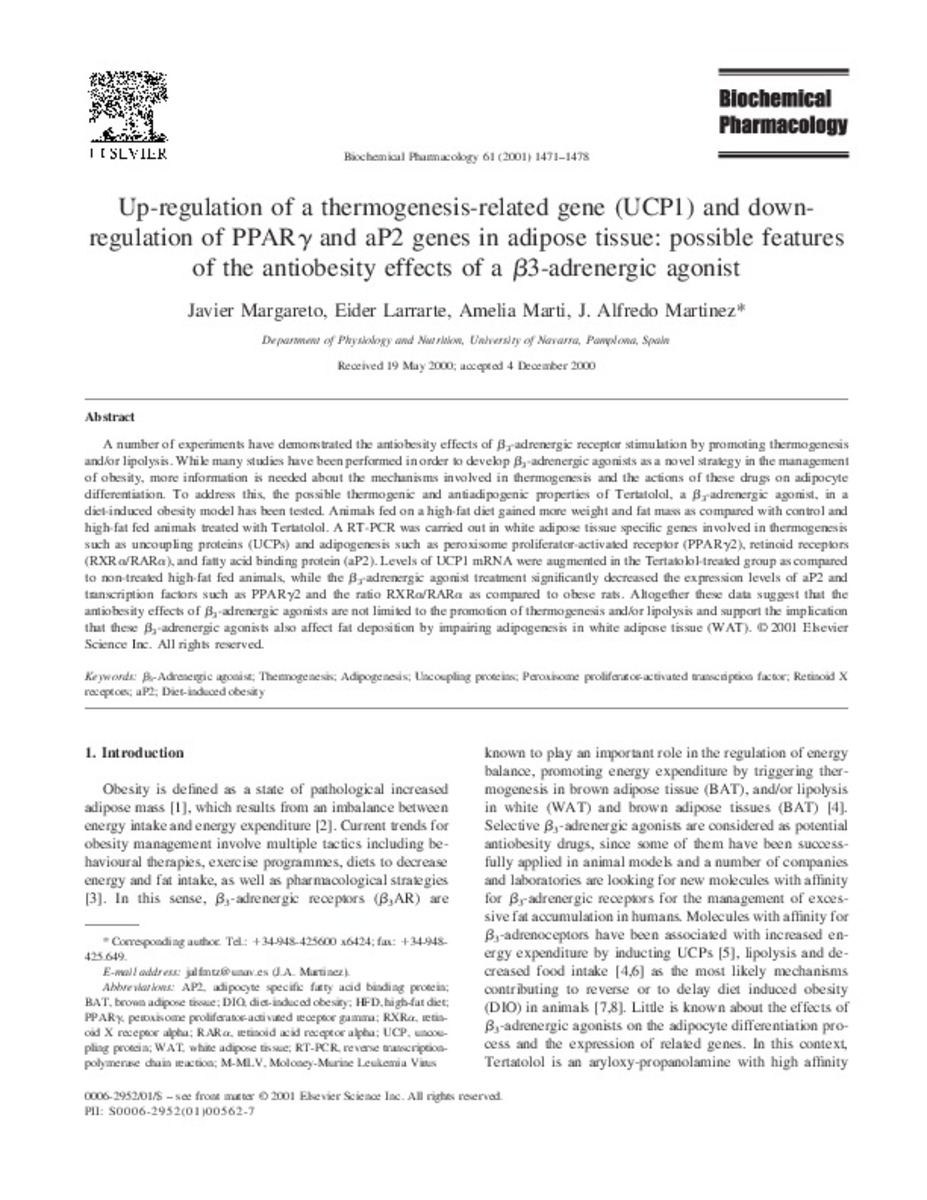Up-regulation of a thermogenesis-related gene (UCP1) and down-regulation of PPARgamma and aP2 genes in adipose tissue: possible features of the antiobesity effects of a beta3-adrenergic agonist.
Keywords:
β3-Adrenergic agonist
Thermogenesis
Adipogenesis
Uncoupling proteins
Peroxisome proliferator-activated transcription factor
Retinoid X receptors
Diet-induced obesity
Citation:
Margareto J, Larrarte E, Marti A, Martinez JA. Up-regulation of a thermogenesis-related gene (UCP1) and down-regulation of PPARgamma and aP2 genes in adipose tissue: possible features of the antiobesity effects of a beta3-adrenergic agonist. Biochem Pharmacol 2001 Jun 15;61(12):1471-1478.
Statistics and impact
0 citas en

0 citas en

Items in Dadun are protected by copyright, with all rights reserved, unless otherwise indicated.







